Note:
The exhaust system (another name is the exhaust system, exhaust system) is designed to remove exhaust gases from the engine cylinders, cool them, and reduce noise and toxicity.
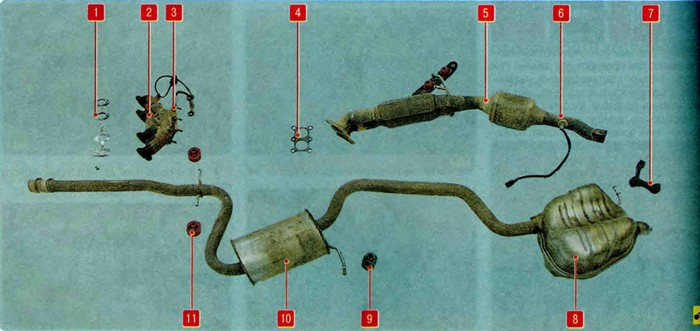
Elements of the exhaust system:
1 - sealing gasket of the exhaust manifold;
2 - exhaust manifold;
3 - control oxygen concentration sensor;
4 - sealing gasket for the exhaust pipe with a catalytic converter;
5 - downpipe with catalytic converter;
6 - diagnostic oxygen concentration sensor;
7, 9,11 - pillows of nodes of the exhaust system;
8 - main muffler;
10 - additional muffler.
Exhaust gases are discharged from the engine through exhaust manifold 2, downpipe with catalytic converter 5, additional 10 and main 8 mufflers.
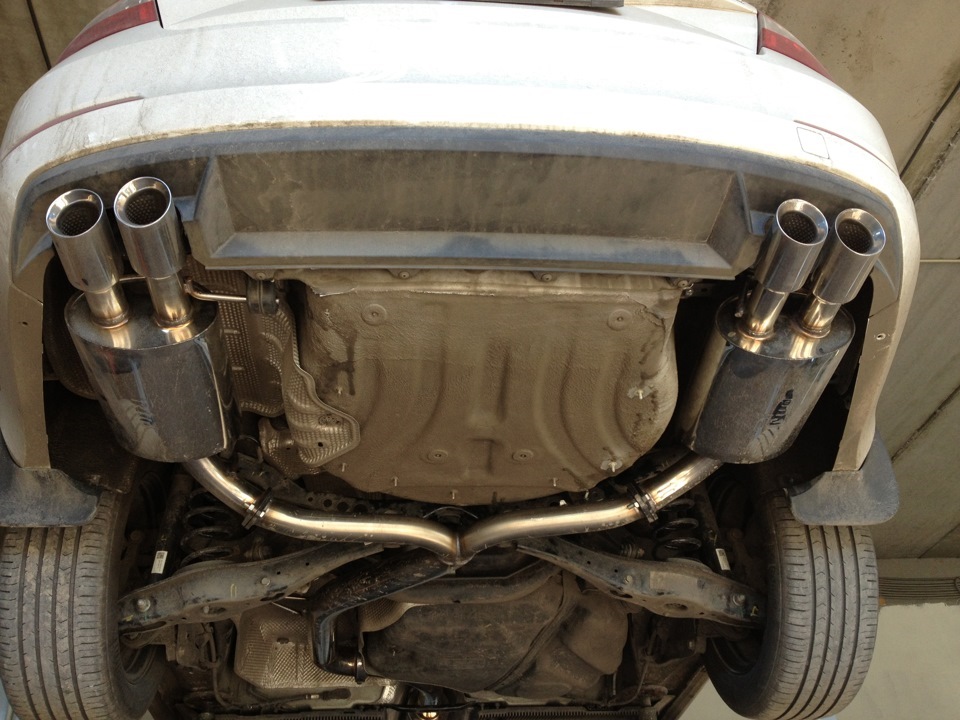
The main (control) oxygen concentration sensor 3 is installed on the exhaust manifold, and the diagnostic sensor 6 is installed on the exhaust pipe with a catalytic converter.
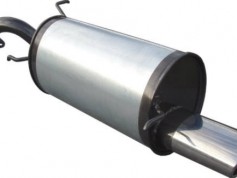
A sealing metal-reinforced gasket 1 is installed between the Skoda Octavia cylinder head and the exhaust manifold flange, and a gasket 4 is installed between the exhaust manifold and the exhaust pipe flange with a catalytic converter.
The downpipe with the exhaust manifold at its other end is connected to the exhaust pipe of the additional 10 and main 8 mufflers, which are combined into a single unit. They are supplied as spare parts separately, for replacement it is necessary to cut the connecting pipeline and purchase an additional clamp.
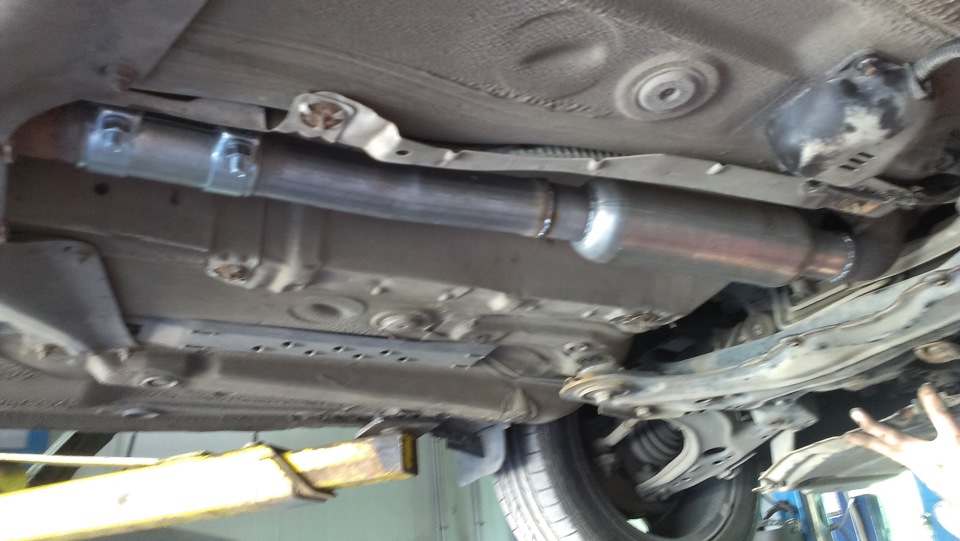
The elements of the system are suspended to the body on rubber cushions 7, 9 and 11.
To protect the engine and the base of the body from heating by the elements of the system, a steel thermal screen is installed above them.
The exhaust system does not require special maintenance. It is enough to periodically check the reliability of the tightening of the threaded connections and the integrity of the suspension pads. In case of damage to the elements of the system, through corrosion or burnout, they are replaced as an assembly.
In addition, an air supply pump is included in the exhaust system.
The pump pumps air for 65 seconds at the outlet valves at an engine coolant temperature of 15-35 °C. As a result, oxygen-enriched exhaust gases enter the exhaust system, which contribute to afterburning and allow the converter to warm up faster. The operation of the additional air supply system is controlled by an electronic engine control unit.
After each subsequent start of the engine and until the engine reaches a temperature of 85 ° C, the additional air supply system is switched on with a delay of 20 s and runs at idle speed of the engine for 5 s, while the system is controlled by the self-diagnosis system.
Note:
Periodically check the exhaust system. If there is an increased noise level from the exhaust system, check its tightness. To do this, start the engine and inspect the entire system. Run your hand over potential leaks without touching the components, and you will immediately feel the release of gases. If necessary, replace rusted and burnt parts.
Allow the exhaust system to cool before repairing, as the exhaust system becomes very hot when the engine is running. Exhaust gases are poisonous, their poisoning occurs imperceptibly, so be sure to open the gate before starting the engine in the garage!
Auto parts stores sell special exhaust system rebuild kits that can be used to temporarily repair damage to the system in order to get to a car service or garage.
Source: http://skoda-octavia2.ru/index.php/sistema-pitania-skoda/114-sistema-vypuska-otrabotavshikh-gazov.html
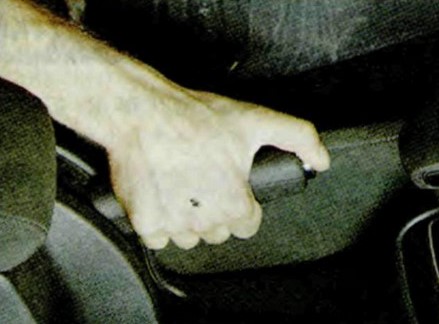
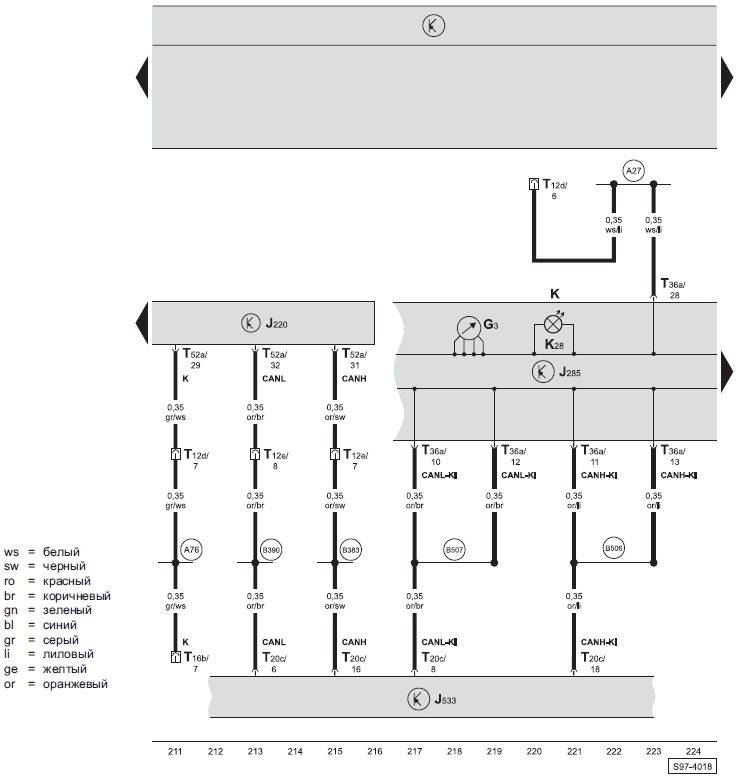
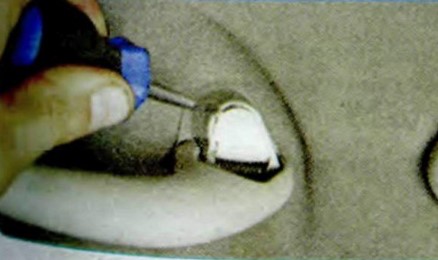
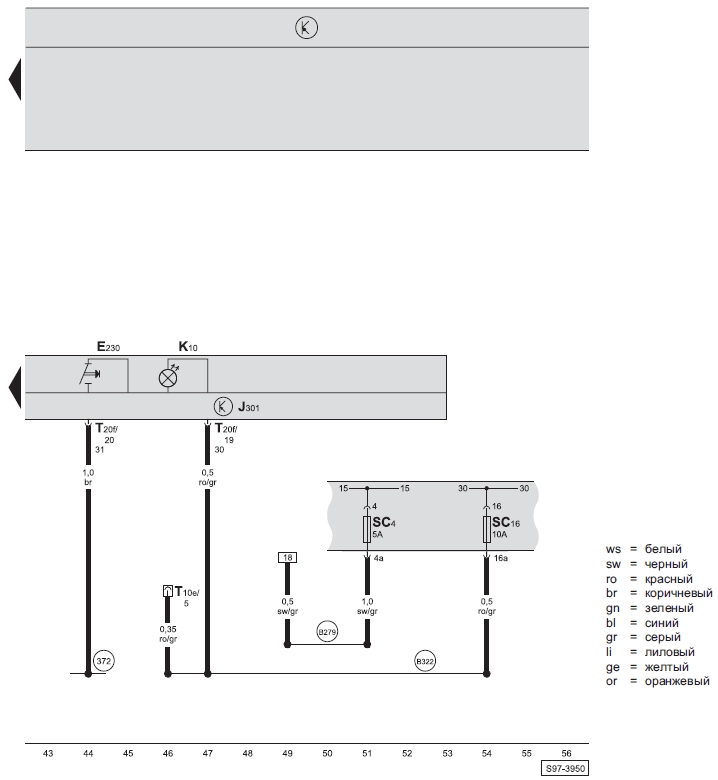
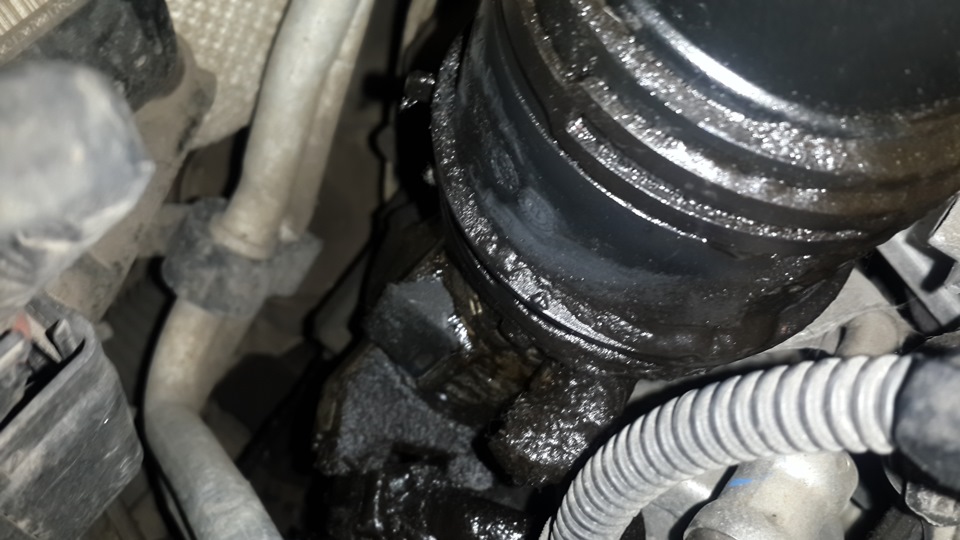
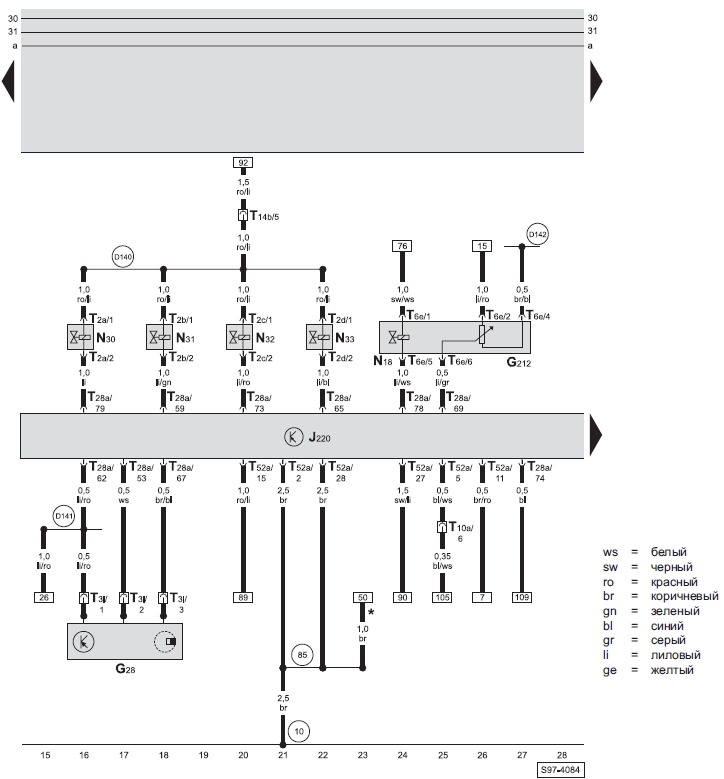
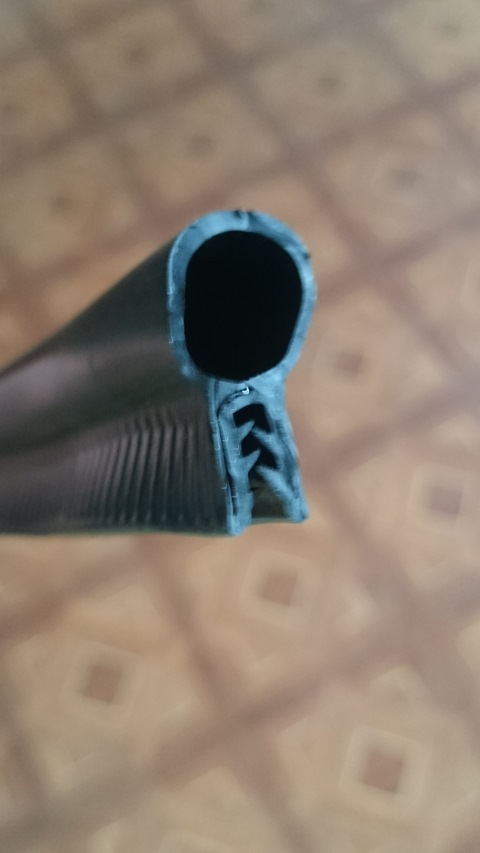
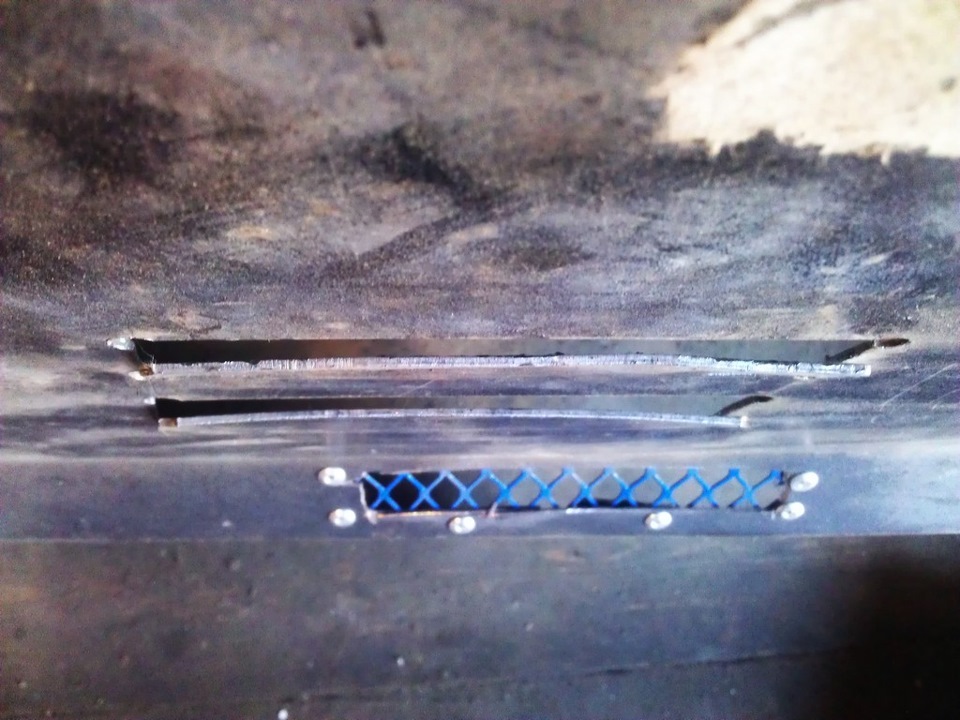
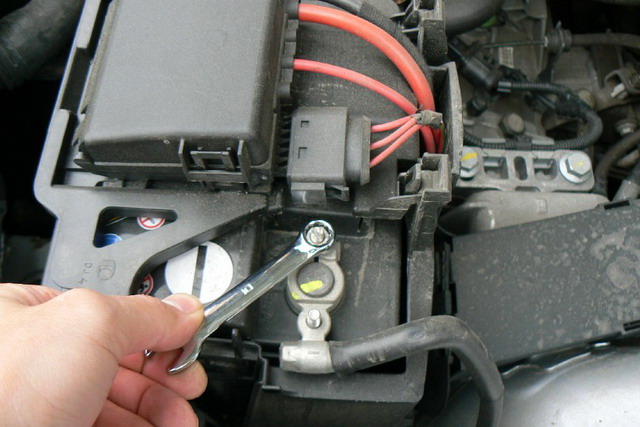
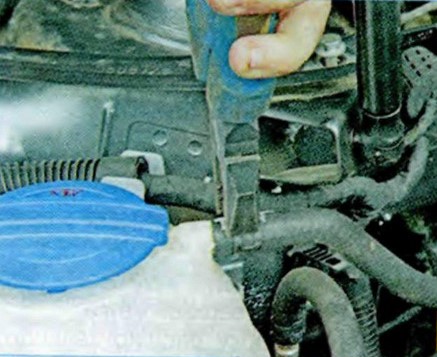
![1 generation [restyling] [2000 - 2010]](/uploads/Skoda_Octavia_2000_-_2010_.jpg)
![2 generation [2004 - 2008]](/uploads/Skoda_Octavia_2004_-_2012_.jpg)
![3 generation [2013 - 2017]](/uploads/Skoda_Octavia_2013_-_2015_.jpg)